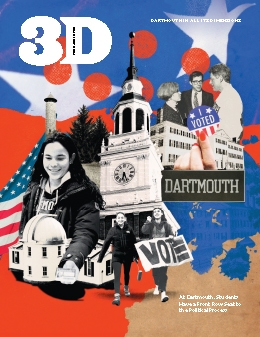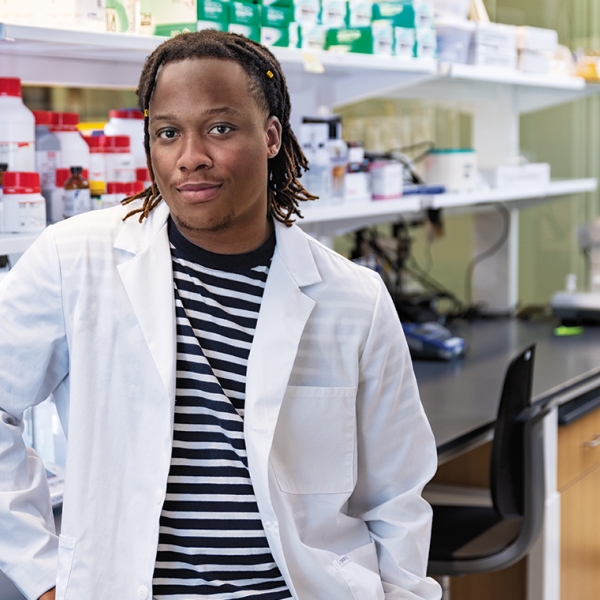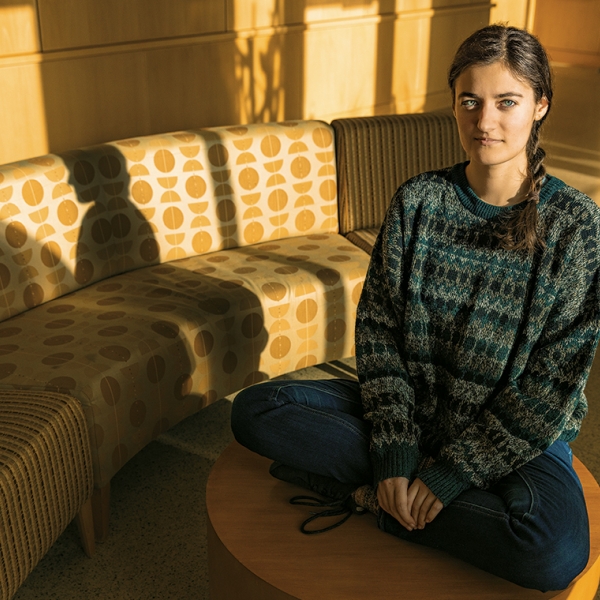Dartmouth Researchers Work to Improve Outcomes for People With Type 1 Diabetes

Corinne Fischer ’26
she/her/hers
Hometown
Seattle, Washington
Major
Economics
Minor
Theater
Dr. Catherine Stanger
she/her/hers
Position
Professor, Center for Technology and Behavioral Health, Geisel School of Medicine at Dartmouth
Corinne, how did you discover Dr. Stanger’s research?
Corinne
I was scrolling Instagram when I saw a post that read, “Are you a young woman with type 1 diabetes? Dartmouth’s Geisel School of Medicine is doing a research study.” I tried to enroll myself, but I couldn’t because my blood sugar is where it needs to be, which is a good thing. But then I thought to myself, “This is so incredible. They’re doing this research in my backyard.” I reached out to Dr. Stanger and said, “I’m a type 1 diabetic, and the research that you’re doing is so cool. I don’t have any research experience, but is there any way that I can get involved?” Her team immediately brought me on board.
Tell us about what you’re studying.
Dr. Stanger
The scientific question Corinne and I are interested in is whether people with type 1 diabetes who receive one-on-one coaching will show better improvements in their blood sugar levels compared to those who do not.
Corinne
Right. In my research, I act as a one-on-one health coach, leading other young adults who have type 1 diabetes through structured problem-solving manuals to help them improve their blood sugar control. Together, we are identifying predictors of intervention engagement by examining baseline demographics to see if they influence the number of coaching sessions participants attend.
This project has deep personal meaning to you, Corinne.
Corinne
Yes. Type 1 diabetes is a 24/7 condition; it doesn’t care about the time of day. It’s a constant presence in my life, and that’s why I chose to get involved in this work.
Dr. Stanger
Our health coaches come from all across the country. Corinne’s identity as a person with diabetes really helps her build empathy and connection with participants.
What advice would you give prospective students interested in pursuing research?
Corinne
Find something you’re passionate about. To me, research never feels like work. It feels like something I get to do, rather than something I have to do. It’s been amazing to connect with other people with diabetes across the United States. Watching their progress over the weeks we spend together is incredibly fulfilling.
Dr. Stanger
Start early. Don’t wait until the spring of your senior year of college to dip your toes into research. Working on a research project can be transformational to someone’s career path in life. You learn about science in a way that’s very different from anything you can learn in a class



